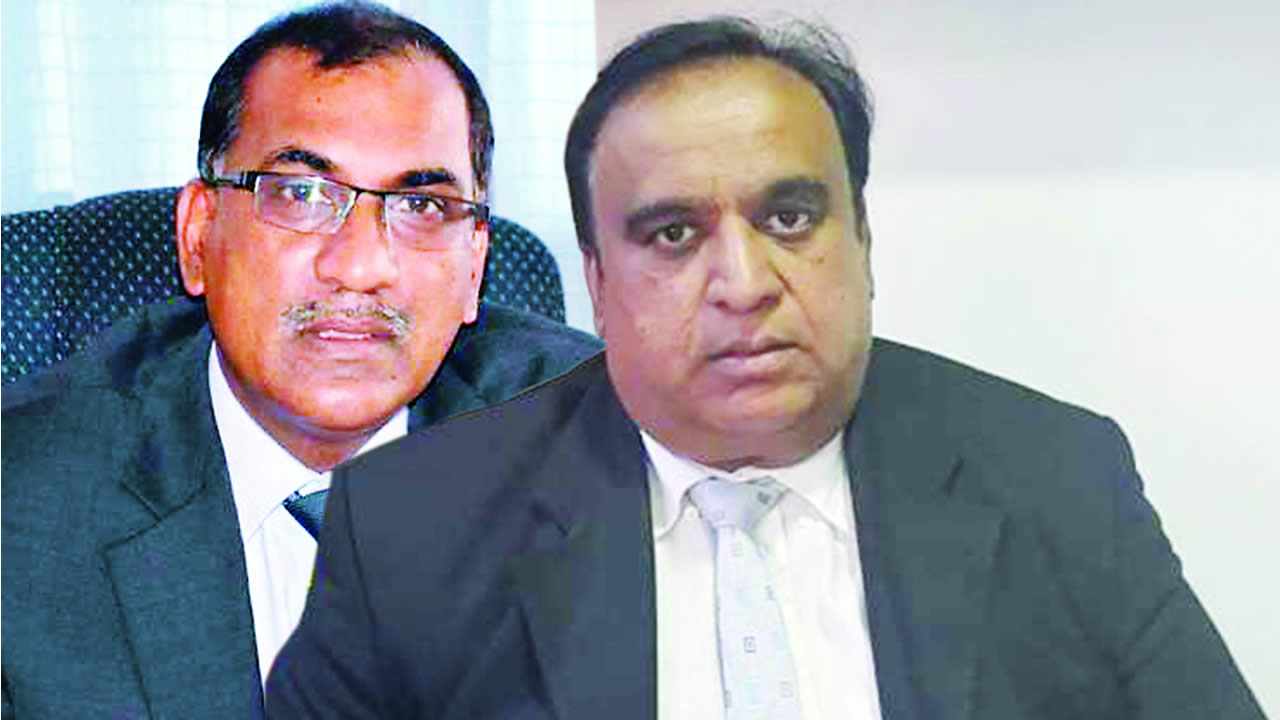
There have been upheavals in the legal profession during the past weeks. Following the interrogation of several lawyers before the Commission of Inquiry on Drugs, News on Sunday approached two legal professionals for their views on the setting up a Legal Ombudsperson in the country.
Sunil Bheeroo : “Appointments in some institutions are too politically motivated”
 Sunil Bheeroo, lawyer, explains that it is first of all fundamental to understand the real being of a legal ombudsperson. “In many developed countries, we do have a legal ombudsperson where the services are free of charge and they look into complaints from the general public about their dealings with legal advisors among many other things. These complaints are invested and acted upon accordingly. In Mauritius, we already have existing bodies namely the Bar Council which receives complaints from clients against barristers, the Law Society for complaints against solicitors and the ‘Chambre des Notaires’ for complaints against practising notaries. All these complaints are looked into and if found to be legitimate, the practitioner may be subject to a hearing for his version and if proven to be founded, there may be disciplinary measures taken.”
Sunil Bheeroo, lawyer, explains that it is first of all fundamental to understand the real being of a legal ombudsperson. “In many developed countries, we do have a legal ombudsperson where the services are free of charge and they look into complaints from the general public about their dealings with legal advisors among many other things. These complaints are invested and acted upon accordingly. In Mauritius, we already have existing bodies namely the Bar Council which receives complaints from clients against barristers, the Law Society for complaints against solicitors and the ‘Chambre des Notaires’ for complaints against practising notaries. All these complaints are looked into and if found to be legitimate, the practitioner may be subject to a hearing for his version and if proven to be founded, there may be disciplinary measures taken.”
Instead of carrying out a legitimate enduring for the good of the profession and subsequently for the good of society, we may find ourselves setting scores against each other.”
Sunil Bheeroo states that, on the other hand, people can also complain to the Master and Registrar of the Supreme Court who is in charge of all those practising lawyers. “There is also the possibility to write to the Chief Justice. Complainants can also send their grief to the Honorary Chief Justice for inquiry as well as to the Attorney General. With all these procedurse being in place, one must understand that there have been many complaints that have been received and acted upon accordingly.”
“I am of the opinion that appointments in some of our institutions are too politically motivated. Therefore, instead of carrying out a legitimate enduring for the good of the profession and subsequently for the good of society, we may find ourselves setting scores against each other,” he states. On the other hand, Sunil Bheeroo underlines that “the legal ombudsman works perfectly well in other developed societies and cases are dealt with purely and simply on merit.”
Hambyrajen Narsinghen : “Should we just copy what has been done elsewhere?”
 The Head of the Faculty of Law at the University of Mauritius, Hambyrajen Narsinghen, believes that, in democratic societies, especially in Mauritius where we have the rule of law, which means nobody is above the law even if you are the Prime Minister, a magistrate, a lawyer, etc.., we should respect the principles of equality. “In our modern society, there has been an increase in the number of barristers. It is the responsibility of the Bar Council to take action against members of the legal profession when there has been a breach of code of ethics.
The Head of the Faculty of Law at the University of Mauritius, Hambyrajen Narsinghen, believes that, in democratic societies, especially in Mauritius where we have the rule of law, which means nobody is above the law even if you are the Prime Minister, a magistrate, a lawyer, etc.., we should respect the principles of equality. “In our modern society, there has been an increase in the number of barristers. It is the responsibility of the Bar Council to take action against members of the legal profession when there has been a breach of code of ethics.
There has always been what we know as auto regulation under the Bar Council Act. It also acts as the trade union for barristers defending the interest of their members but at the same time it has powers to sanction. These sanctions can be mandatory when there have been minor breaches whereas in the case of major breaches the Supreme Court has to take the action. The Supreme Court, on its own, can also initiate actions and summon barristers for hearings,” he explains.
It is the responsibility of the Bar Council to take action against members of the legal profession when there has been a breach of code of ethics.”
Hambyrajen Narsinghen states that there have been changes in jurisdictions around the world. “For example in the UK in 2007, there has been the setting up of the new Legal Services Act which made a sort of distinction with the Bar Council. There has been the setting up of two institutions namely the Bar Standard Board and under this Act in 2010, they have also created the Legal Ombudsperson. The Legal Ombudsperson has distinctive features. It is impartial and independent. On the other hand, the Bar Standard Board is a sort heterogeneous body comprising of one magistrate, one barrister and one layperson. Here also all precautions are taken not to entrust decision making solely to the barrister. But unlike the Ombudsman, this Bar Society Board is responsible of ethics and it can take sanctions if there has been breach.”
Hambyrajen Narsinghen argues that despite the changes in countries like UK and Germany, there have been no such changes in Mauritius. “Those who claim that we need an ombudsperson should question if we should just copy what has been done elsewhere. When we look at the legal services and the ombudsperson for children in Mauritius, they are more enquiring officers than regulatory bodies. They have no power to sanction. If we do create a Legal Ombudsperson, which is a good idea, we have to see to it that it is independent and impartial and we have also to create a sort of Bar Standard Board. But the danger with that is that we should regulate and not over regulate. There is a balance that should be struck.”
 J'aime
J'aime














